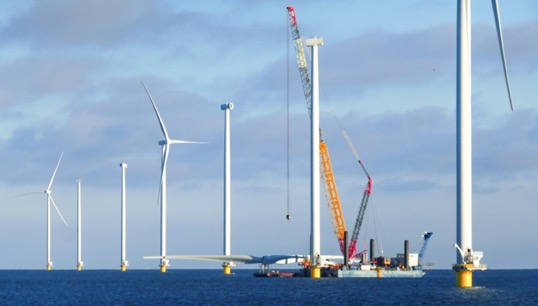
At present the UK sector of the North Sea is the largest producer of wind energy in the world, yet the majority of the vessels involved in the construction and maintenance of these turbines are manned by non-UK marine crew.
As we are no longer tethered to the EU rules of freedom of movement, is it not time we introduce rules of cabotage such as many other countries around the world already have in place? For example, the Jones Act requires that vessels operating between US ports must be crewed by American seafarers, Brazil demands that 70% of a ship's crew are Brazilian and Australia requires almost all marine crew to be Australian.
With the demise of the cruise industry and oil and gas still on its knees, this is an opportunity to secure the future of the many unemployed UK seafarers in what is an expanding market.
There are vessels permanently using UK ports as their base and operating solely in the UK sector of the North Sea which have not one UK seafarer onboard. This I know for a fact, as I recently did a relief trip on a PSV operating from Aberdeen and working the UK sector. I was the only UK national onboard, and I was then replaced by a Norwegian.
The introduction of the UK minimum wage achieves nothing, as most of these non-UK seafarers are already paid more than that. If, on the other hand, companies were forced to give the same pay and conditions including PAYE deductions as their UK counterpart it would then not be cost effective to employ non-UK seafarers.
Membership no 184110
More letters
Same old story on seafarer safety
I was watching a recent programme on BBC1, Why Bridges Collapse, about the MV Dali container vessel hitting the bridge at Baltimore. The part where they were taking the bridge's trusses off the bow of the vessel I found quite illuminating.
DP training was fine until the goal posts were moved
I very much agree with the letter written by member number 179359 regarding the high costs of attaining and revalidating dynamic positioning (DP) certification.
In memory of Anthony (Tony) Fell
In memory of Anthony (Tony) Fell, a former Council member and a Union member since 1963 who was dedicated to furthering the development of radio officers.
